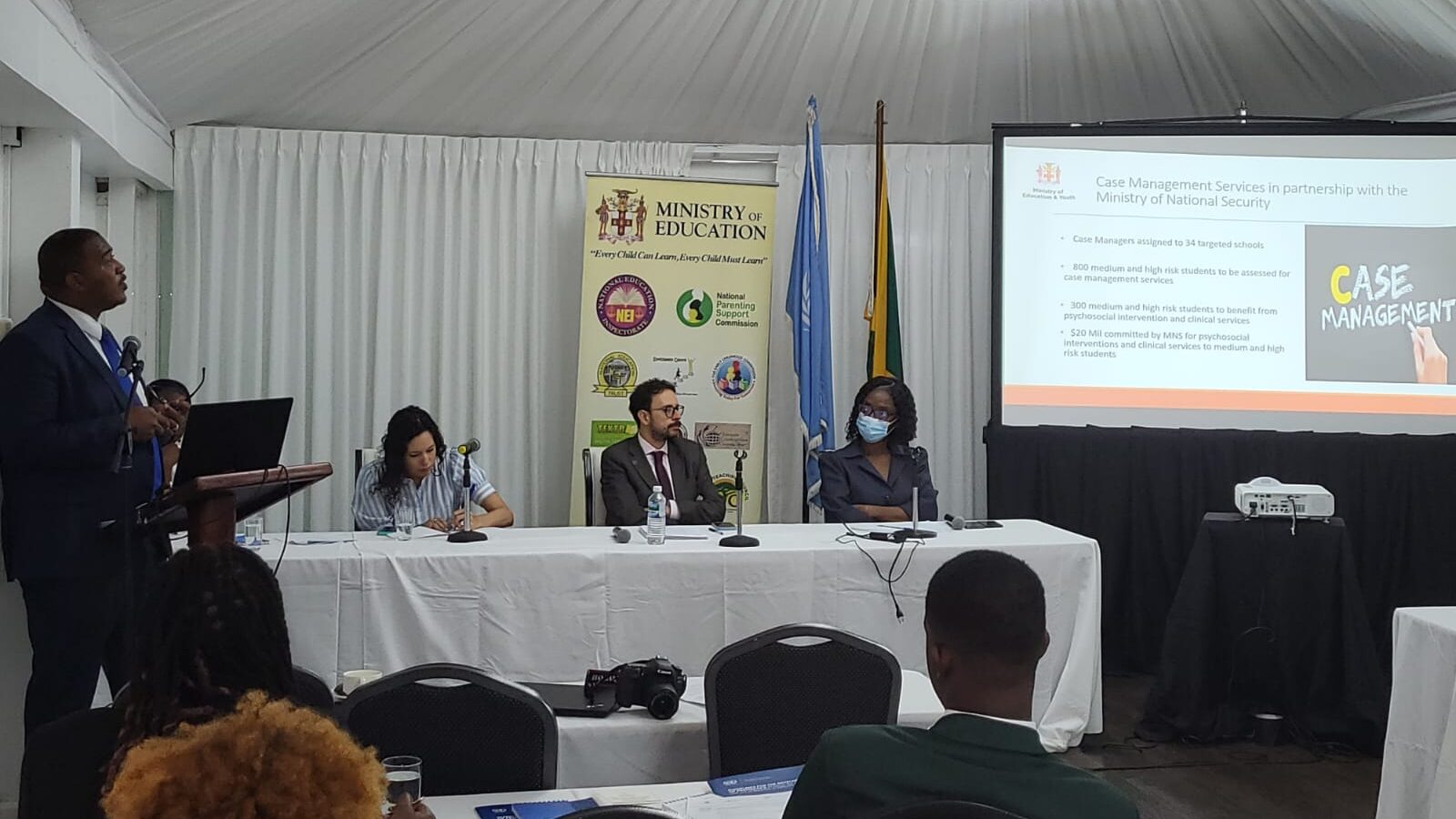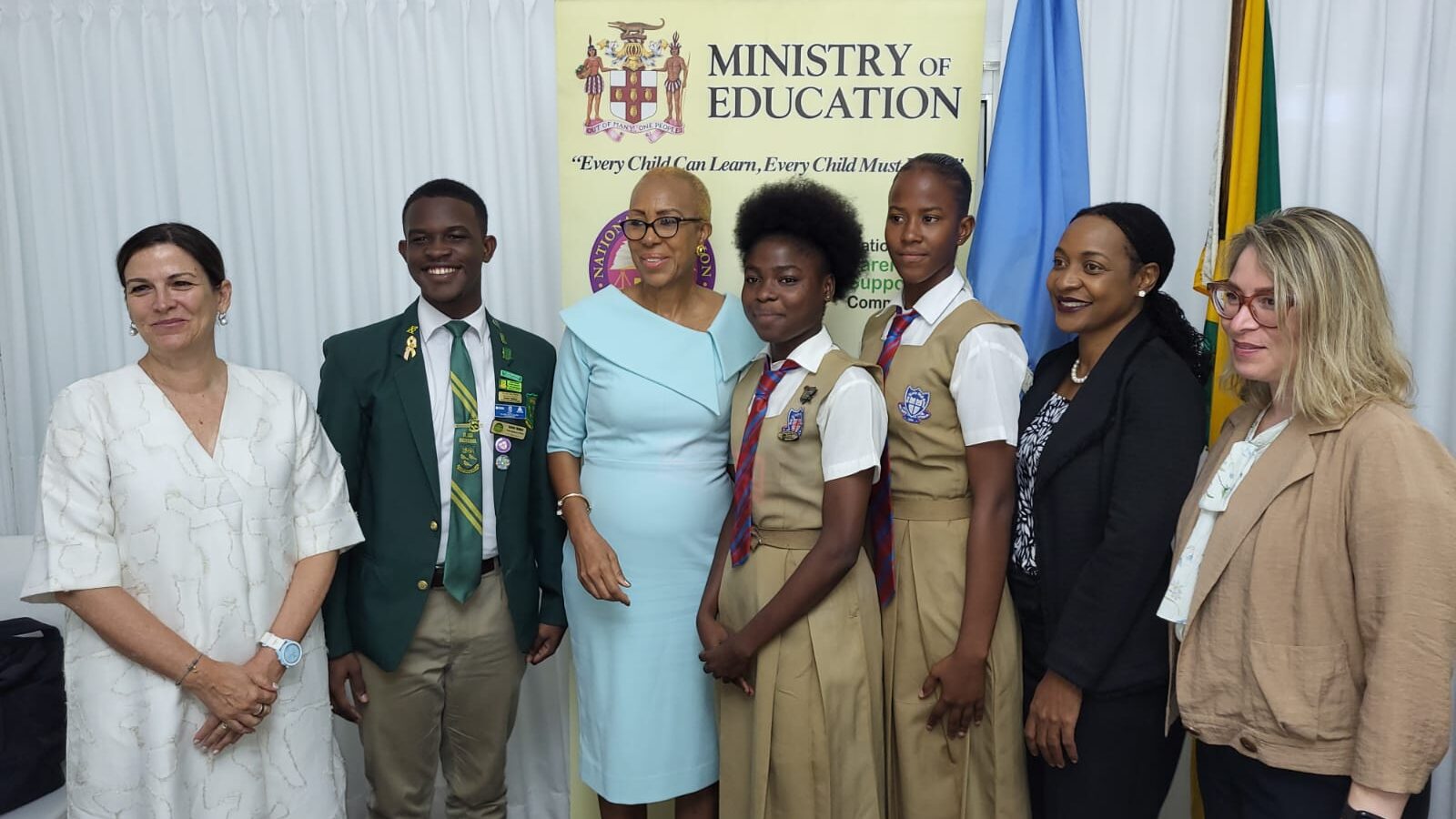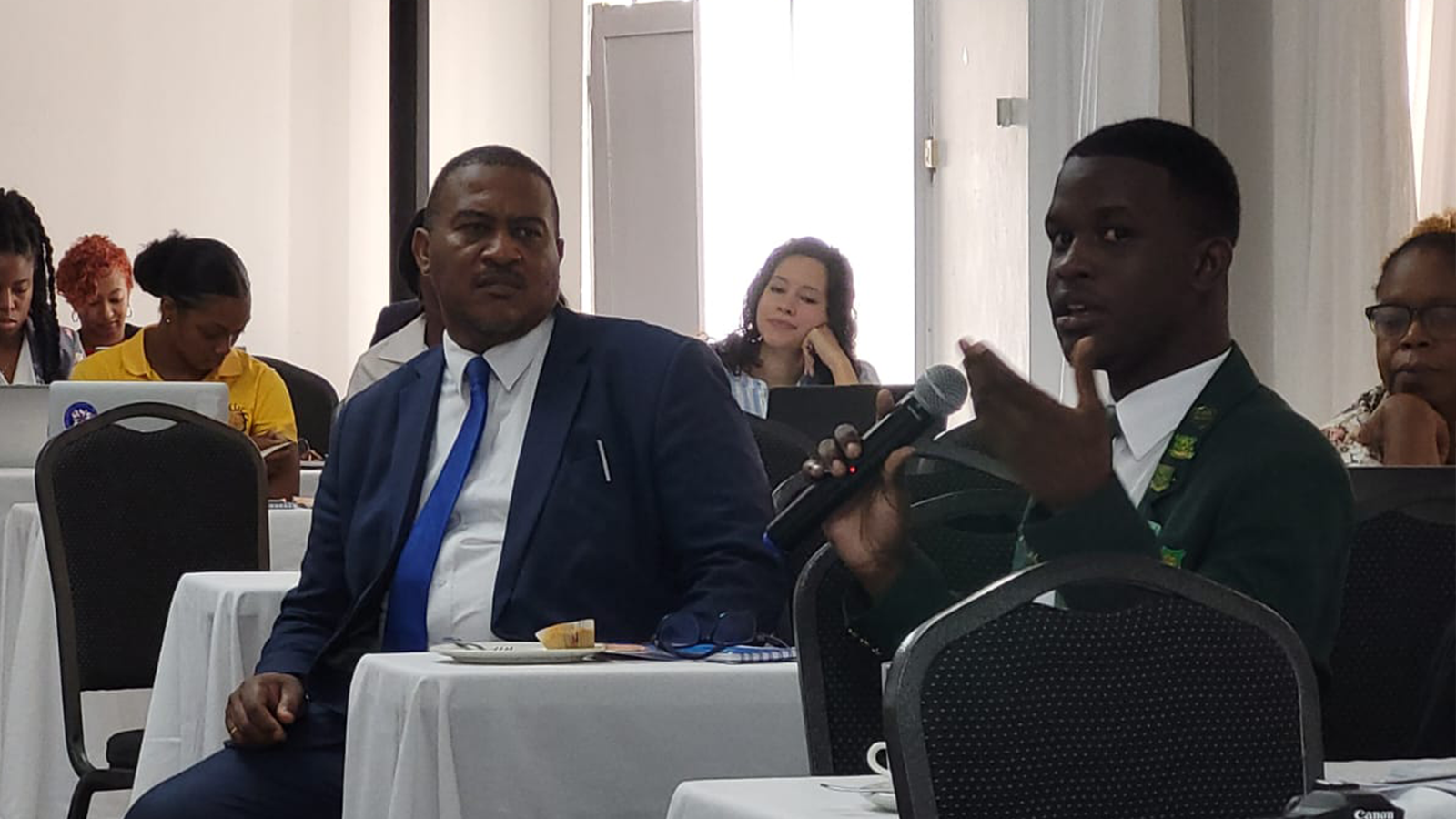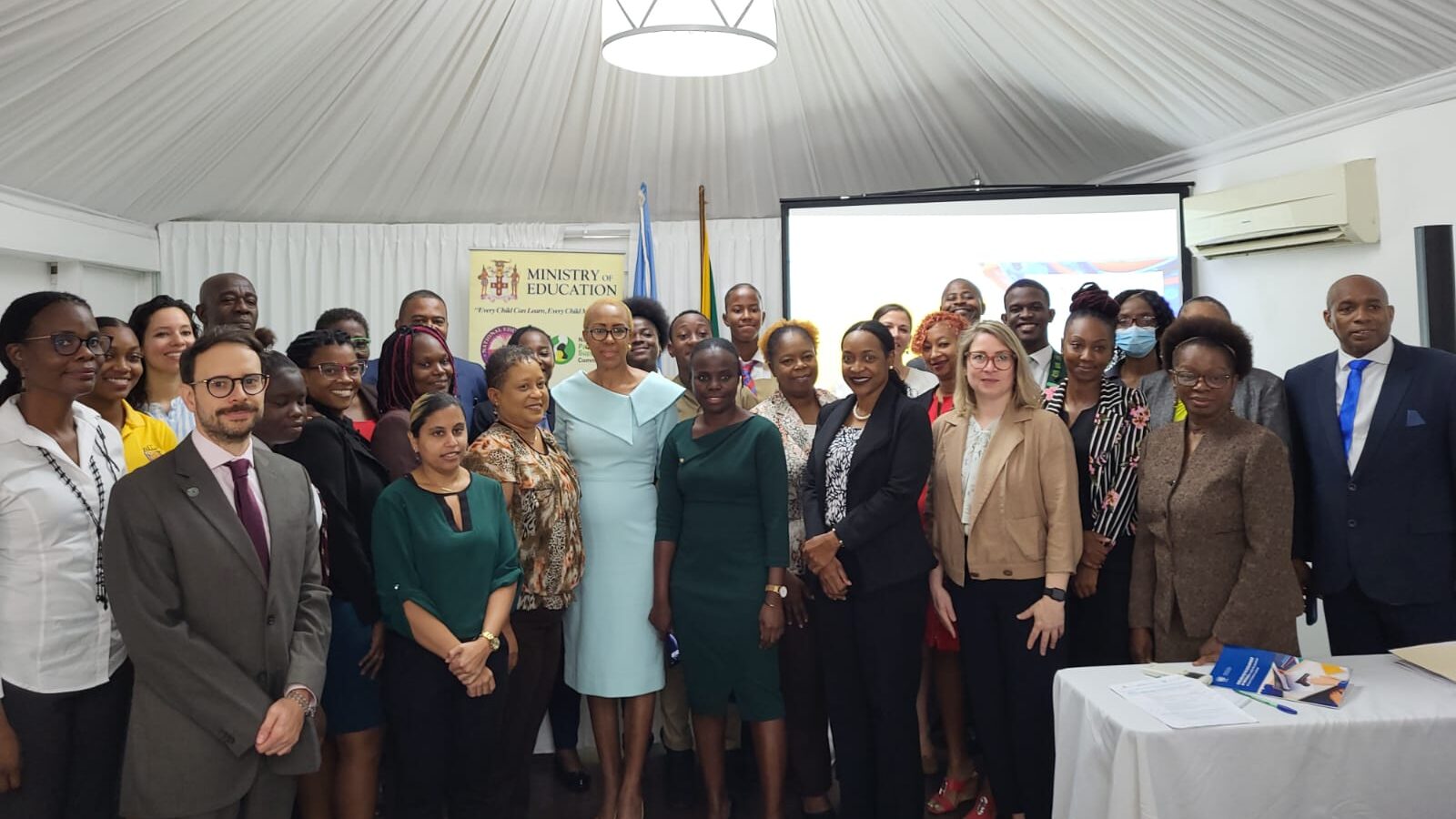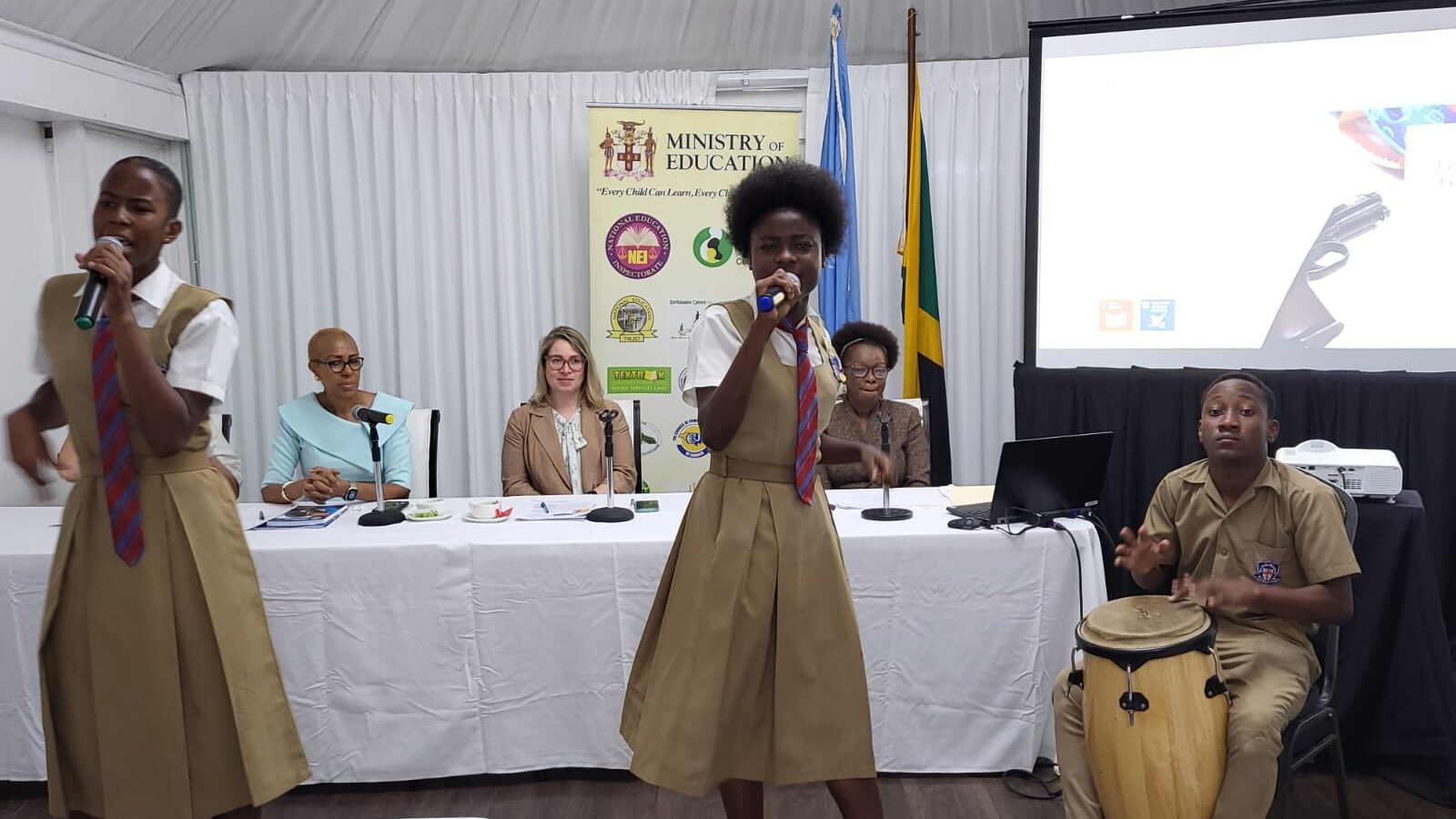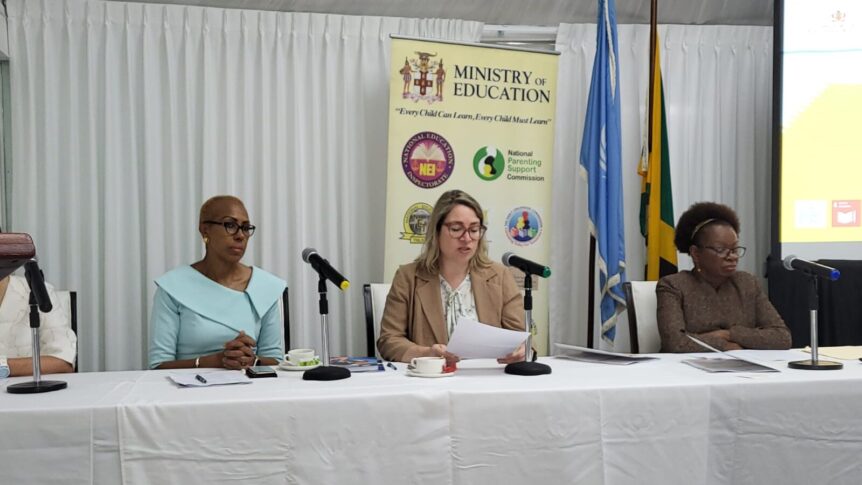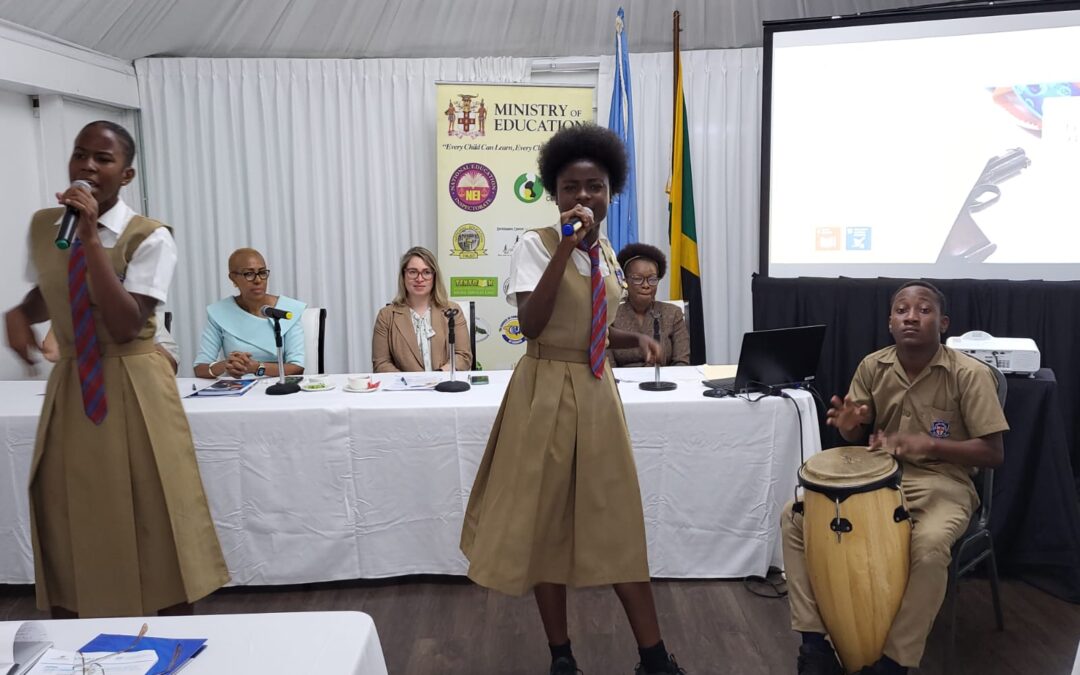Jamaica’s Ministry of Education and Youth (MoEY) and the United Nations Regional Centre for Peace, Disarmament and Development in Latin America and the Caribbean (UNLIREC) are collaborating to strengthen measures to tackle the presence of firearms in schools and youth-related violence in general.
During a recent seminar organised by the MoEY’s Safety and Security in Schools’ Unit, UNLIREC and the Planning Institute of Jamaica, participants including representatives of UN agencies, civil society members and youth representatives noted the challenges of youth-related armed violence, inside and outside of school campuses as well as measures being implemented to address the problem. They also highlighted the need for the education and security sectors to provide coordinated responses and comprehensive solutions to ensure the well-being of communities, given that violence affects almost all aspects of life in society.
The discussions focused on preventive approaches across Latin America and Caribbean. While Jamaica has not had many incidents involving the use of firearms in schools, it is seen as crucial for stakeholders to work together from a prevention angle. “Prevention is better than cure” was a key sentence repeated throughout the seminar by participants and panellists.
“Firearm-related and other types of violence is an unfortunate reality of our society that often spills over onto school campuses. Violence by and among students in schools and elsewhere often result from many contributing factors including community disputes, dysfunctional family relations, maladaptive behaviours by students and sometimes the easy access to weapons. We need to address the elements that put children at risk, including access to firearms. We need to create a positive and inclusive school environment assisting students to build upon their strengths,” said Mrs. Fayval Williams, Minister of Education and Youth in her remarks.
Mrs. Soledad Urruela, UNLIREC’s Director stated in her remarks that “The mere presence of a firearm in a school setting – for whatever reason – is a transgression and an affront to everything schools represent. Weapons have no place in spaces that exist for peaceful coexistence, socializing and most of all for learning, in which girls, boys, and adolescents are taught to be good citizens and where indispensable core values are transmitted. We must all work toward preventing this scourge through an inclusive, whole of society approach. We must all do our duty to guarantee safe schools for a just, peaceful and sustainable future for our children and societies”.
During the Seminar, UNLIREC officially launched the Guidelines for the Development of Protocols to Tackle the Presence and Use of Firearms in Schools, which will serve as the basis for national discussions among different stakeholders for the development and implementation of action and response protocols to firearms incidents in school settings.
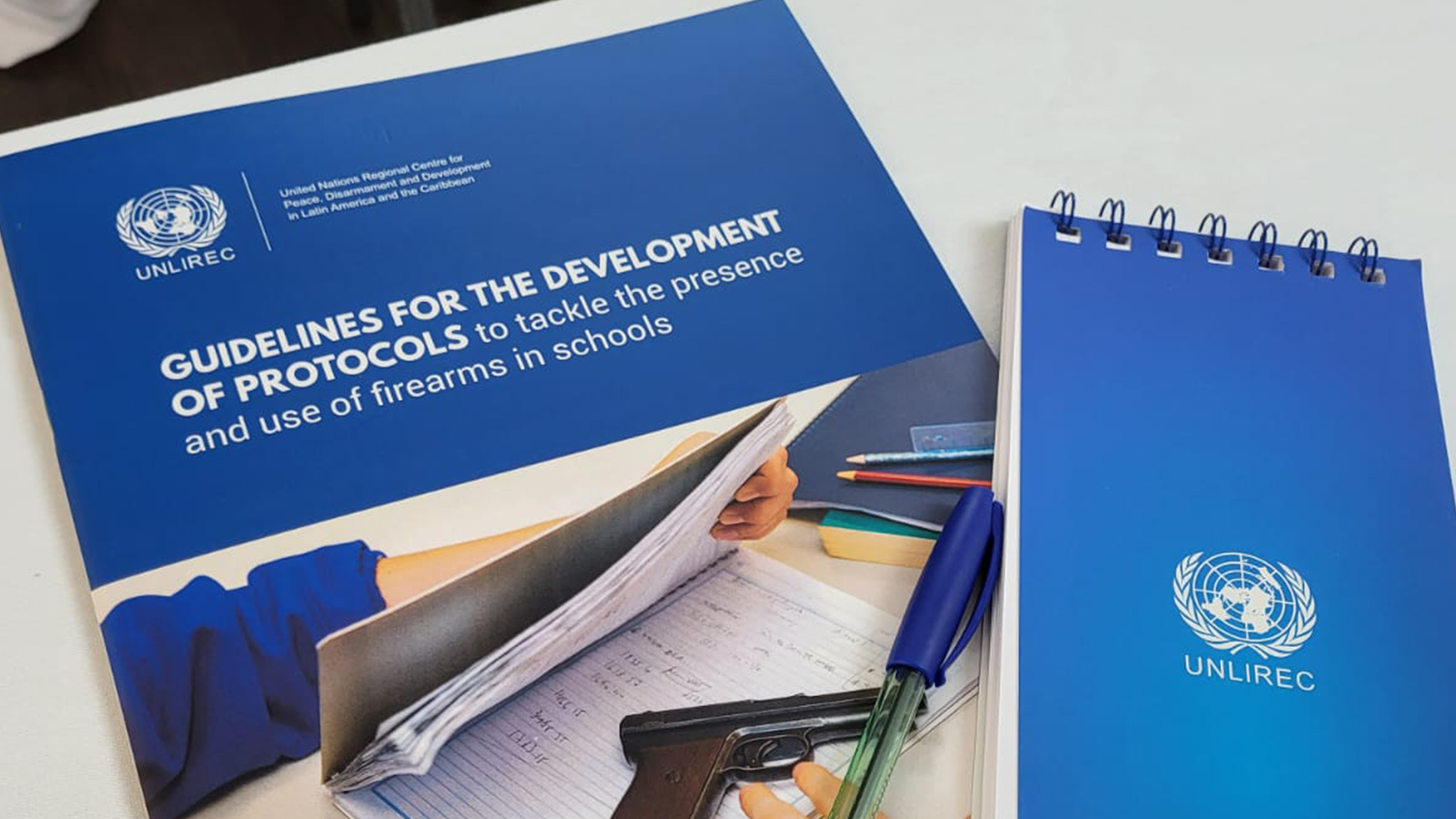
The initiatives and recommendations presented and discussed during the Seminar will serve as practical references to strengthen the efforts already being made by Jamaican institutions in the violence prevention sector, particularly school violence.
Dr. Anna Paolini, Director of UNESCO’s Office for the Caribbean expressed on behalf of the UN Resident Coordinator that “the national seminar gives evidence to the capacity of the UN system to collaborate for development by leveraging the multinational expertise of its agencies and taking them to the shores of member States. Jamaica recognizes that the issue of violence in schools requires a multi-stakeholder approach, and the UN welcomes the opportunity to play its role as partner”.
This Seminar forms part of the activities carried out under the Saving Lives Entity (SALIENT) fund initiative in Jamaica, which seeks to operationalize and mainstream small arms control into development efforts and policies in Jamaica and marks the end of UNLIREC´s firearms in schools’ component under the Salient project.
The SALIENT fund initiative is implemented in Jamaica by the Office for Disarmament Affairs (UNODA) and its Regional Centre for Peace, Disarmament and Development in Latin America and the Caribbean (UNLIREC), the United Nations Development Programme (UNDP), the United Nations Office on Drugs and Crime (UNODC), as well as the United Nations Educational, Scientific and Cultural Organization (UNESCO).
